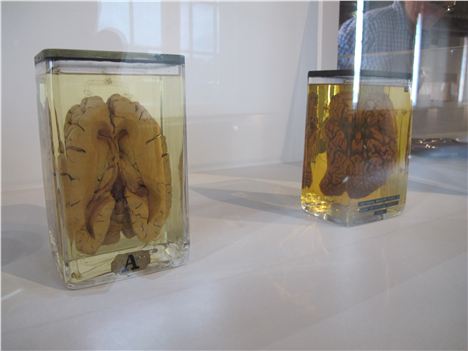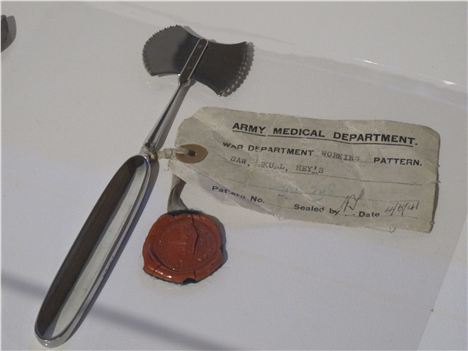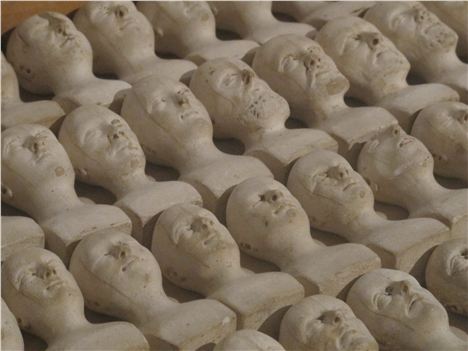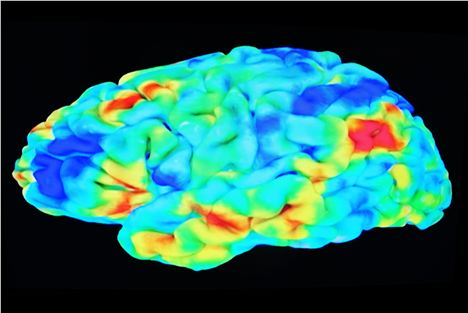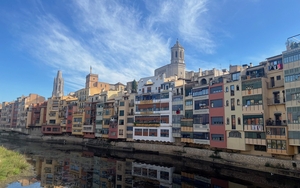YOU may already be aware of this, but our brains are quite spectacular... and a bit of a mystery.
The more we find out, the more mysterious they become. Tad annoying that.
“The archives and collections of The University of Manchester reveal some of the inspiring individuals who were drawn to treating the brain and nervous system and helped to make the city a centre for neurological science and medicine."
They’re by far the most complex biological structure on earth, made up of around 86 billion neurons, each of which connects to thousands of other neurons which are hooked up to thousands more neurons producing an infinite amount of outcomes and possibilities. Mind-boggling.
It’s rather humbling to think as far as unexplored frontiers go, it is not the deepest darkest trenches of the ocean, nor the farthest reaches of space, but that large walnut-looking entity inside our own bonces that we arguably know the least about.
I mean, what is even happening when we think? Is it electro-chemical hocus pocus? Or is there something more to our consciousness, something we can’t quite put our finger on?
Well this new exhibition at the MOSI, Brains: The Mind As Matter delves into the enigma that is the brain. Asking not what the brain does for us (which is everything), but what we have done to the brain.
This fascinating Wellcome Collection exhibition on show outside of London for the first time, features more than 100 items (over a third of which are from Manchester and have never been on public display) including real brains, artefacts, videos, manuscripts, photography, artwork and a great number of saws, knifes, picks and hammers that you certainly wouldn’t want anywhere near your melon. I mean, look at this one...
Explore footage of the world’s smallest known brain from a nematode worm with but 300 odd neurons (moron), a 5000 year-old-skull with holes drilled into it, a computer modelled replica of Albert Einstein's brain and a fragment of William Burke’s brain, a man hanged in 1829 for the murder of seventeen people for the purpose of dissection by a shady anatomist - poetic justice really.
The exhibiton also showcases twelve contemporary artists, including one newly commissioned work by Salford-based artist Daksha Patel of a cross-section of the brain produced using goose fat. Why not.
Director of MOSI, Jean Franczyk said: “MOSI is proud to be the only museum outside London to host this exhibition from the Wellcome Collection. It covers one of the most important science issues of our time and puts the human brain into beautiful perspective.”
So what has been done in Manchester to advance our understanding of the brain?
Curator of Brains, Marius Kwint said: “The archives and collections of The University of Manchester reveal some of the inspiring individuals who were drawn to treating the brain and nervous system and helped to make the city a centre for neurological science and medicine.
"There are some fascinating stories here: of Carys Bannister, the Brazilian-born first female neurosurgeon in Britain; of her knighted predecessor, Sir Geoffrey Jefferson, who worked in revolutionary Russia and gave radio talks about the philosopher Descartes; and of the medical artist, Dorothy Davison, who dedicated her equally pioneering career to documenting Jefferson’s surgical work with drawings of raw beauty and precision. And then of course there are the sometimes tragic and touching cases of their patients.”
Marius also thinks it’s fitting that this exhibition has come to Manchester, “It’s great that in this museum and in this city, at the heart of the Industrial Revolution, with all the engines and the pipes and the girders, it’s a great analogy and metaphor for the workings of the brain."
Exhibitions such as this are pertinent reminders of why the recently publisised threat of MOSI closure would be such a great loss to the city.
The MEN has recently reported that the museum has begun talks with Manchester Airport over a proposed sponsership deal that would award the museum some much needed financial stability.
However, we have been reliably informed by a museum insider that this was "nothing but a rumour."
And with Culture Minister Ed Vaizey recently stating: "Let's not beat around the bush - they won't close." It would seem that we have nothing to worry about for the time being.
And a bloody good job aswell. Long live the MOSI.
Brains: the Mind as Matter opens at the MOSI on 26 July until 4 January 2014.









